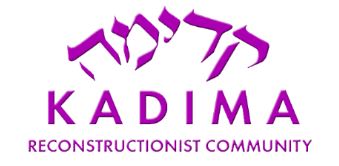D’var Torah on Ha’azinu (Deut. 32) 25 elul 5777
by Simone Adler
Shabbat Shalom. Here we are at the end of the year, the final chapters of Deuteronomy before we turn the Torah back to Genesis. This is a poignant time of transition, and the parsha Ha’azinu aptly includes the poem of Moshe, illustrating the peculiar power of words in song and poem form. I would like to start out by saying that this is an edge for me to give d’var on Torah that I am not very familiar with, and in front of community. So I really appreciate the opportunity to practice and deepen my relationship to Torah, especially in this time where I am mourning and am witnessing the mourning of others around me.
So we just read the farewell epic poem-song that Moshe delivers to the Israelites, in which he explains that through keeping God’s word, the people Israel will be able to live well in the land they will enter, and warns of the consequences of forgetting and transgressing God. The emotional force of this poem is found in its esoteric language, of the disaster of “no-Gods” and “no-folk”, of “venomous wine” and “arrows drunk with blood”, of vengeance and recompense. The allegory, metaphor, and imagery in the poem bring forth the commandment to fear God, and in my reading of it, sound fiery contrary to Moshe’s gentle opening that his “speech distill as the dew, like showers on young growth, like droplets on the grass”.
Moshe knows he will not be the leader anymore. He is told by God to die on the Mountain of Nebo. Yet he pulls all of his passion to remind the people that God is their Rock, and is upright and just, evoking the complexities that ring out for generations and historical events, even to this current political moment: how can there be a just God with so much injustice? While there could be many conclusions drawn as to why there is prosperity of the wicked, of darkness in this world, Moshe pleas that the fault is not above but with our people, ourselves.
In seeking other commentary on this notion, I came across Psalm 92, one of my favorite, the song of Shabbat, and this interpretation from Rabbi Jonathan Sacks:
Though “the wicked spring up like grass,” they will eventually be destroyed. The righteous, by contrast, “flourish like a palm tree and grow tall like a cedar in Lebanon.” Evil wins in the short term but never in the long. The wicked are like grass, the righteous like a tree. Grass grows overnight but it takes years for a tree to reach its full height. In the long run, tyrannies are defeated. Empires decline and fall. Goodness and rightness win the final battle. As Martin Luther King said in the spirit of the Psalm: “The arc of the moral universe is long, but it bends toward justice.”
Now, there is a lot to pull out of this on the theme of land and justice. I read a d’var earlier by a fellow activist who I took action with in the West Bank just months ago, in a coalition of Palestinians, Israelis, and internationals supporting the return of a Palestinian family to their land. She talks about the parsha in terms of tshuva and “the extreme arrogance of our institutions about Jewish entitlement to the land, the way they brush off the humanity of Palestinians and erase their stories from our view, is a modern form of idolatry.” She calls upon us to “shake our community out of its sleep and push it towards a new course.”
Typically, I would speak to this message in Moshe’s poem as a lesson to reexamine the Jewish relationship to Israel. And I am excited that this parsha is so ripe for commentary on justice. But today, this Shabbat, what is sticking out for me is about death.
Moshe is told to die just moments before entering the long-awaited promised land. He is told he will see the land, but not come there. His time is finished, and he is to leave the world.
I recently lost a baby cousin at just 2 months old. And I know there are members of our community here who have recently lost loved ones. Just this week a learned of one of my close friends losing her best friend to suicide, and a colleague losing her brother and husband to cancer, a friend losing her aunt to cancer, my partner’s sister losing a family-friend to corrupt murder in another country. These are all very intense tragedies of undue loss. I would like to ask you to join me in a brief moment of silence.
What Moshe’s experience brings to my mind is the tragedy of reaching a point in life, but dying before it is realized. Everyone will die, so the reality is that this will always be the case – there is always something more to be actualized, achieved, witnessed, surpassed, accomplished, celebrated. Death of course happens in so many different ways, so it is not always in the power of those dying to take such meritorious action as did Moses in front of the people whom he led out of slavery, led to crossing the Red Sea, receiving the Torah. Moshe took his last opportunity to speak to his people in a burst of passion and blessing.
So what I challenge to interpret from this is the swell of passion and blessing that comes from death and dying. Be it in the person leaving this physical world, their loved ones and community, others affected by the ripples of loss, or all of the above. I know in my experience of mourning, while I was struck with such pain, I have seen baby Jack’s life as a pure blessing on the hardship of my family members to know how deep and transformative love can be. - I know that for many other lives that I have honored in their passing, their gifts and those whom they touched are everlasting. Just as we, the descendants in the lineage of the Jewish people, represent the everlasting covenant Moshe implored upon us, may we honor the memory and share our passion inspired by those who have died. As we say, may their memory be for blessing.
Thank you so much for hearing my d’var today. Shabbat Shalom.



 RSS Feed
RSS Feed